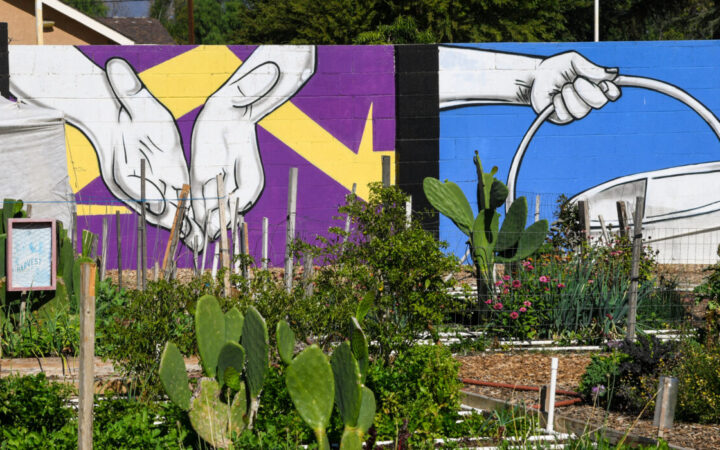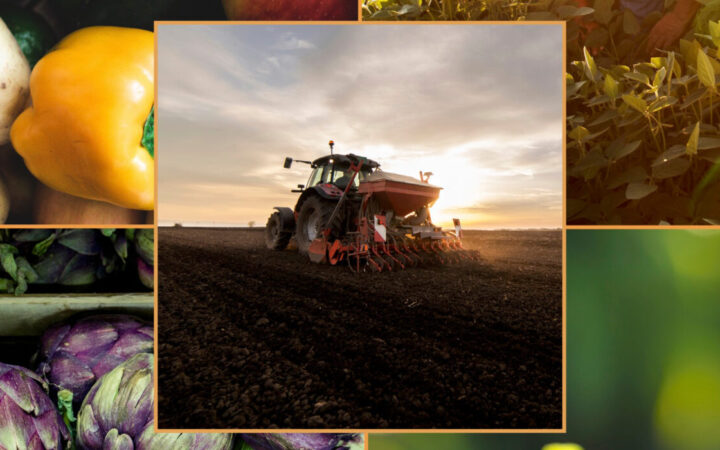This resource illustrates the need for a coordinated federal approach to food and agricultural law and policymaking through an analysis and review of new domestic strategies and coordination approaches, as well as international food strategies developed between 2017 and 2020.
Introduction
The United States continues to face concurrent and interrelated crises of food-related inequality, diet-related disease, and environmental and climate disruption. While the inequalities, challenges, and inconsistencies endemic to the U.S. food system have long been recognized, the COVID-19 pandemic exacerbated these issues and shone a spotlight on them. In 2017, the Harvard Law School Food Law and Policy Clinic and Vermont Law School’s Center for Agriculture and Food Systems published the Blueprint for a National Food Strategy, a roadmap for developing a U.S. national food strategy. Since then, federal agencies have incrementally increased efforts to coordinate on discrete food system issues, yet none of these initiatives has elicited a comprehensive strategy that holistically addresses critical food system challenges, tradeoffs, and long-term goals. Yet, the need for a coordinated federal approach to food and agricultural law and policy has increased dramatically since 2017. Given the significant food system issues raised by the COVID-19 pandemic and the ongoing and sustained movement to address systemic racial inequality coupled with the looming national election, the time is ripe to examine and update the Blueprint.
A thriving food and agricultural system (“food system”) is essential to the United States due to its implications for our nation’s economy, individual and communal health, environment, and social equality. Despite the intersectional nature of these issues, our national food laws and policies are fragmented. Instead, the food system is governed by a complex web of laws and regulations, with government agencies, foreign and domestic stakeholders, and community organizations advocating for policies that often conflict, create redundancies, or increase inefficiencies.
The people of the United States stand to reap significant benefits from a national food strategy that embodies a coordinated federal approach for food and agricultural law and policymaking. Such an approach could increase legislative and agency coordination, thereby reducing administrative redundancy and inefficiency; engage stakeholders and the public through meaningful opportunities to share their challenges, priorities, and suggestions for policy development; and ultimately maximize economic, health, environmental, and social benefits.
Food and agriculture account for 5.4 percent of the American economy, contributing more than $1 trillion to the U.S. gross domestic product (“GDP”). The food system also employs 11 percent of the U.S. workforce, and the entirety of the U.S. population has an economic stake in the food system, as we all participate as consumers. However, the food system fails to meet our nation’s most important and basic needs in a variety of ways.
Acknowledgements
This report would not have been possible without the assistance, partnership, and tremendous production support of Lihlani Skipper Nelson, Associate Director and Research Fellow, Center for Agriculture and Food Systems at Vermont Law School and the support of Kyra Sanborn, Advancement Officer at the Center for Health Law and Policy Innovation, on report production, release, and communications.
We would like to thank the following for their significant research, writing, input, and editing support: Esther Akwii, Clinical Fellow of the Food Law and Policy Clinic at Harvard Law School and Cydnee Bence, LLM Fellow, Center for Agriculture and Food Systems at Vermont Law School. In addition, the following students contributed significant research and writing to the report: Bradley Adams, Madison McDonald, Tessa Pulaski, Ali Ruxin, and Ali Schklair. Finally, the following Food Law and Policy Clinic Students at Harvard Law School contributed additional editing and writing support: Libby Dimenstein, Oscar Heanue, and Stephanie Kelemen.
We thank the following people for reviewing this report. The reviewers do not necessarily concur with the report’s arguments and recommendations, but provided useful guidance on portions of its content: Jerold Mande, Senior Advisor, Center for Science in the Public Interest, Margot Pollans, Professor of Law, Director of Pace-RDC Food Law Initiative at Elisabeth Haub School of Law, and Emily Spiegel, Assistant Professor and Faculty Fellow, Center for Agriculture and Food Systems at Vermont Law School.
Report Layout and Design: Andrea DiMattina, Andrea DiMattina Design www.andreadimattina.com
Original Report Layout and Design: Ericka Wallis, Graphic Designer at Community Blueprint and Andy Berndt, Director at Community Blueprint www.communityblueprint.com
Suggested Citation
Emily Broad Leib et al., Vt. L. Sch. Ctr. for Agric. & Food Sys. & Harv. Food and L. Pol’y Clinic, The Urgent Call for a U.S. National Food Strategy (2017), https://foodstrategyblueprint.org/wp-content/uploads/2020/10/food-strategy-report-update-2020.pdf.




